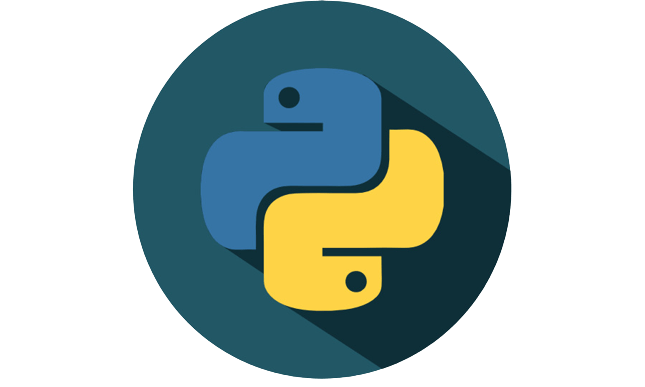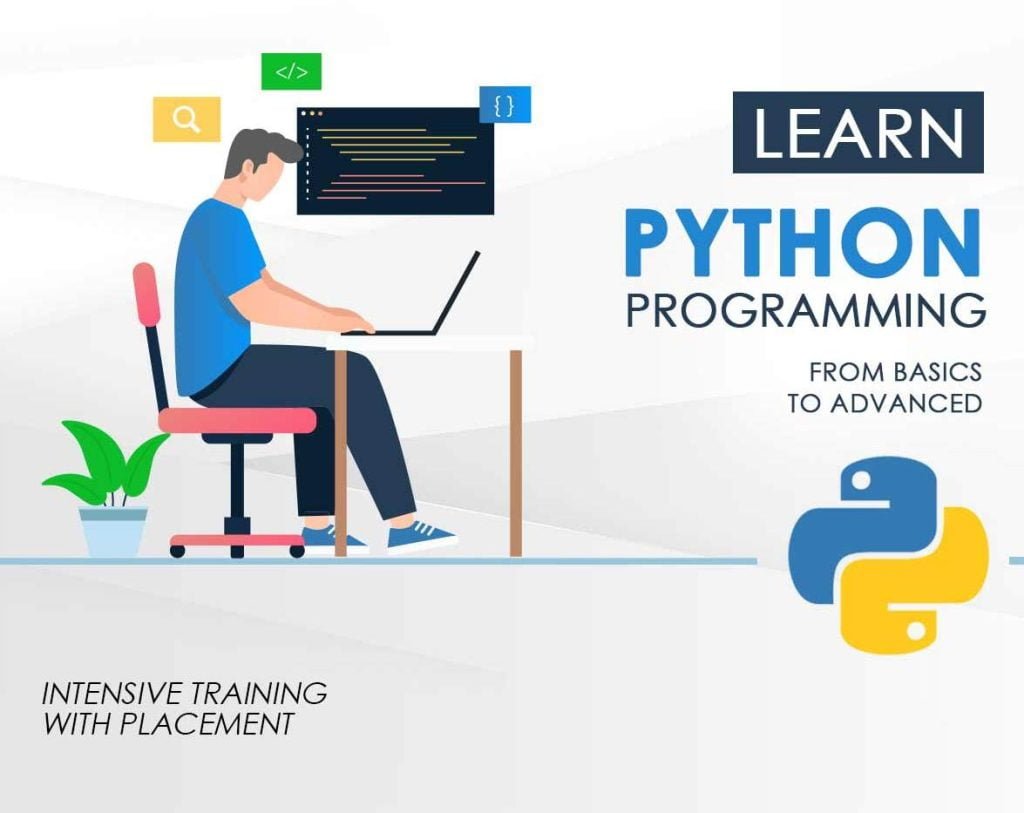Python Training
Galaxy Cloud is the best python training institute in India offering python training course online and offline…


- Lesson: 16+
- Language: English | Hindi
- Level: Advanced
- Duration: 2 Months
- Placement: Yes
Professional Python Training
Galaxy Cloud is a leading Python training institute in India offering Python training online and offline. Our Python courses are designed with focus on hands-on coverage of core concepts. Python is a high-level, interpreted, general-purpose programming language. Its design philosophy emphasizes code readability with the use of significant indentation.
Python is dynamically-typed and garbage-collected. It supports multiple programming paradigms, including structured (particularly procedural), object-oriented and functional programming. It is often described as a “batteries included” language due to its comprehensive standard library. Python is most remarkable for its versatility and wide application including automation, network penetration, hardware programming and more.
Galaxy Cloud’s Python training prepares candidates for practical application of this general-purpose-programming language we’ve come to know as Python.
Course Curriculum
Chapter 1.1: IDLE-An Interpreter for Python
Chapter 1.2: Python Strings
Chapter 1.3: Relational Operators
Chapter 1.4: Logical Operators
Chapter 1.5: Variables
Chapter 1.6: Keywords
Chapter 1.7: Script Mode
- Chapter 2.1: Built-in Functions
- Chapter 2.2: Function Definition and Call
- Chapter 2.3: Command Line Arguments
- Chapter 2.4: Importing User Defined Module
- Chapter 3.1: if Conditional Statement
- Chapter 3.2: If- else Conditional Statement
- Chapter 3.3: if-else-if Conditional Statement Ladder
- Chapter 3.4: Loops(For and While Loop)
- Chapter 3.5: Nested Loops
- Chapter 3.6: Break Continue and Pass Statements
- Chapter 4.1: String Functions
- Chapter 4.2: String Processing
5.1Lists
5.1.1 Summary of List Operations
Chapter 5.1.2
Function list
Chapter 5.1.3
Functions append, extend, count, remove, index,pop, and insert
Chapter 5.1.4
Function insert
Chapter 5.1.5
Function reverse
Chapter 5.1.6
Functions sort
Chapter 5.1.7
List Functions and List Comprehension
Chapter 5.1.6
Lists as Arguments
Chapter 5.1.9
Copying List Objects
Chapter 5.1.9
map, reduce, and filter Operations on a Sequence
5.2 Sets
Chapter 5.2.1
1Set Functions add, update, remove, pop, and clear Set Functions union, intersection, difference,
Chapter 5.2.2
2Subset and Superset Test
Chapter 5.2.3
Union and Intersection Operation on Lists
5.3 Tuples
Chapter 5.3.1
Summary of Tuple Operations
Chapter 5.3.2
Functions count and index
5.4 Dictionary
Chapter 5.4.1
Dictionary Operations
Chapter 5.4.2
Deletion
6.1 Recursive Solutions for Problems on Numeric Data
Chapter 6.1.1
FactorialIterative Approach Recursive Approach
Chapter 6.1.2
Fibonacci Sequence Iterative Approach
6.2 Recursive Solutions for Problems on Strings
Chapter 6.2.1
Length of a String
Chapter 6.2.2
Reversing a String
Chapter 6.2.3
Palindrome
6.3 Recursive Solutions for Problems on Lists
Chapter 6.3.1
Flatten a List
Chapter 7.1
Classes and Object
Chapter 7.2
Person: An Example of Class
Chapter 7.2.1
Class as Abstract Data Type
Chapter 7.3
Date Class
Chapter 7.4
Polymorphism
Chapter 7.5
Operator Overloading and Overriding
